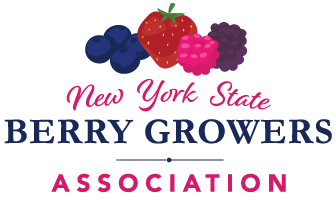Submitted by Cornell University College of Agriculture and Life Sciences
Cornell Agricultural Workforce Development has opened registration for a new online course in the Supervisory Leadership Certificate Program. Offered for the first time, “Employee Development and Training” course materials release and registration closes on March 3, 2023. Live weekly Zoom sessions will be held 3 to 4 PM EDT each Thursday from March 9 through April 13. Continuing education credits are offered. Course cost is $275 and spaces are limited.
Find information and registration for the Agricultural Supervisory Leadership certificate courses here.
“I hope participants will gain practical tools that they can put in their supervisory skills toolbox. They can pull these tools out and use them to build a great workplace and solve problems. Ultimately, we want farm managers to be just as confident about their ability to lead people as they are about their ability to manage farm production,” said Dr. Richard Stup, Agricultural Workforce Development Specialist.
Employee Development and Training is the course you’ve been waiting for! Identify training needs. Understand learning styles. Design and plan learning experiences that accommodate learner needs. Develop effective training skills and techniques. Evaluate learning results and training effectiveness.
“We’re always looking for ways to improve labor management and leadership skills and we encourage our employees to take courses too,” said Bob DiCarlo, FaBa Farms, who took the Managing Performance course, and his employee took Organizing Work for High Quality Results. “We’re focused on continuous improvement. One of the big pluses has been getting to have time to learn from people not in the same agriculture industry and to talk through real-life situations. The breakout Zoom sessions were worthwhile. It was helpful for me to talk through situations and for our employee too. It's easy to say I’m busy but pick the course that would be of most interest. When you push your comfort zone, it returns the most. We’re continuing to see the importance of stepping away from daily tasks on the farm to see the bigger picture.”
The Agricultural Supervisory Leadership Program includes a series of courses that help farm supervisors and managers learn and apply human resource management practices and leadership skills that foster rewarding workplaces and drive business results. Confident managers who thoughtfully apply leadership and management skills improve employee performance, develop teams, reduce employee turnover, and increase employee engagement. The six courses within the certificate series offer extensive practice and engagement activities to build confidence and skill sets.
Who should attend?
This course, and the whole certificate program, is appropriate for both new and experienced farm supervisors and managers, and those preparing to become supervisors. All participants learn leadership concepts and practice skills that improve their ability to build a positive workplace and get results through leading others.
How to attend?
The course is taught online, but you can still actively engage with other learners. Watch prerecorded presentations on your own schedule, and engage with classmates and instructors during weekly, live discussion sessions. Participation in the live sessions is highly encouraged and provides a valued opportunity for peer-to-peer learning and networking. Continuing education credits are offered.
Course instructors include:
Richard Stup, Cornell Agricultural Workforce Development Specialist
Elizabeth Higgins, Ag Business Management/Production Economics Extension Specialist with the Eastern New York Commercial Horticulture team
Libby Eiholzer, Bilingual Dairy Specialist, Cargill
Bob Milligan, Cornell University Professor Emeritus
Kaitlyn Lutz, Bilingual Dairy Management Specialist
Jay Canzonier, Cornell Agricultural Workforce Development Extension Support Specialist
Direct questions to Rachel McCarthy, Agricultural Supervisory Leadership Coordinator, at rachel.mccarthy@cornell.edu.
Courses in the Supervisory Leadership certificate program can be taken in any order and include:
Transitioning to Supervisor: Develop essential communication skills and manage conflict. Lead a multi-cultural team. Build an effective workplace culture.
Organizing Work for High Quality Results: Create an efficient and high-performing workplace. Develop clear expectations and standard operating procedures. Delegate effectively. Diagnose and correct performance problems.
Managing Performance: Understand motivation. Harness the power of performance feedback and coaching. Build clear and effective workplace communications. Set safety expectations. Conduct effective performance improvements.
Ethics and Employment Regulations for Supervisors: Implement responsible and ethical labor practices and understand why this matters for agriculture. Recognize and prevent sexual harassment. Understand and follow minimum wage and overtime laws. Implement Equal Employment Opportunity laws to prevent discrimination and harassment. Use an employee handbook. Handle employee discipline and termination.
Employee Development and Training: Identify training needs. Understand learning styles. Design and plan learning experiences that accommodate learner needs. Develop effective training skills and techniques. Evaluate learning results and training effectiveness.
Staffing and Organizing Your Team: Develop job descriptions. Learn how to find potential employees, interview and select the right people. Implement new hire documentation, employment authorization, and onboarding: bringing new employees into the business successfully and productively.






